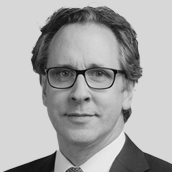
Dr. Juerg Steffen is CEO of Henley & Partners and author of definitive books on high-net-worth relocation to Austria and Switzerland.
High-net-worth-individual migration statistics speak volumes. Affluent families are extremely mobile, and their transnational movements can provide an early warning signal in terms of a country’s economic outlook and future country trends. Like the proverbial canary in the coal mine, they alert us to dangers that may lie ahead as they are more sensitive to potential threats to their wealth and usually have the resources to take a corrective course of action to preserve their legacies.
An increasing outflow of millionaires often points to a drop in confidence in a country, since high- and ultra-high-net-worth individuals have the means to leave and are usually the first to exit and vote with their feet when circumstances deteriorate. Along with their families, millionaires bring to their host countries their wealth, their networks, and the taxes they pay, which is why losing them can be detrimental to the economies of the countries they migrate from. In some cases, affluent entrepreneurs relocate their businesses, incurring not just a loss in employment they generate, but also of their skills, qualifications, and influence. So, while its millionaire residents reflect only a fraction of a country’s population, producing, attracting, and retaining them is an important endeavor for any nation state.
In general, wealth migration trends look set to revert to pre-pandemic patterns this year, with Australia reclaiming the top spot for net inflows as it did for five years prior to the Covid outbreak, and China seeing the biggest net outflows as it has each year for the past decade. Besides Australia, the highest proportion of wealthy families relocating this year are opting for the UAE, Singapore, the USA, and Switzerland.

Political stability, low taxation, and personal freedom have always been key metrics for millionaires when it comes to deciding where to live. However, the priorities of affluent individuals are shifting to the intangible but equally vital elements that impact; their children’s prospects, the quality of their lives, and the legacies they leave. Wealthy families want to ensure that their offspring have access to top-tier academic institutions to pave the way for their success. They are looking for optionality to move to cities that are more resilient to climate change and that offer a good quality of life, and to put down roots in countries where their capital can be protected for many generations to come.
Singapore, Switzerland, and the UAE have all built their reputations on the premise of being safe havens not only for living but also for preserving wealth. They have also established themselves as highly attractive business hubs where companies can thrive in fiscally advantageous jurisdictions with favorable corporate tax rates as well as zero wealth and inheritance taxes.
Security is also a key factor, particularly in uncertain times, which is why so much private wealth is flowing into countries that offer a robust regulatory environment where the rule of law is respected, and economic freedoms are guaranteed. After enduring financial volatility in global markets, many investors have sought the security of brick-and-mortar assets, which has consequently increased demand for real estate-linked investment migration programs in the Caribbean, Malta, and the UAE.
Historically, the driving motivation for investor migrants was to obtain an alternative residence or citizenship and ensure they had a Plan B in place. Only a handful would use these emigration assets to relocate to new countries with their families. Today, high-net-worth individuals want to build a portfolio of domiciles to safeguard their interests as they focus on gaining the widest optionality of living, working, and investing in jurisdictions of their choice. This is why the onus is currently on governments to lure these investors to their shores.
As circulatory migration becomes more prevalent, countries will also need to remain competitive enough to retain this private wealth onshore. As a growing number of well-to-do individuals choose to move to numerous different jurisdictions throughout their lifespans, nation states will need to ensure that they are consistently offering the most attractive private wealth conditions to both attract and retain international investors.
As we experience substantial volatility, with wars, social unrest, economic disruptions, and climate change as ongoing threats, our governments need to look at ways to attract and funnel in foreign direct investment, human capital, and innovation.
One of the reasons countries such as Singapore and Switzerland attract private wealth is the level of economic freedom they grant. This year, they were ranked 1st and 2nd, respectively, in the Heritage Foundation’s 2023 Index of Economic Freedom. The primary aspects of economic freedom measured in the index encompass the rule of law, which impacts property rights and the effectiveness of courts, the tax burden, the size of the government, and the nation’s fiscal health, business, labor, and monetary freedoms, and the openness of financial markets.
To attract affluent families, governments need to offer an excellent quality of life, something that has become progressively valued post-pandemic. This includes access to world-class education for children and advanced private medical care. Unsurprisingly, Australia, which is this year’s top private wealth magnet, ranks highly across all these facets, according to the UN’s latest Human Development Index.
Out of the Top 10 countries that are successfully attracting net inflows of high-net-worth individuals in 2023, nine offer investment migration programs. These countries have actively employed residence by investment programs, which are sometimes referred to as golden visa programs, as a strategy to draw in much-needed foreign direct investment.
By channeling the capital inflows into local social and economic initiatives, these governments can use investment migration programs as an innovative financing tool, boosting their rate of development, strengthening their labor markets, and fueling their prosperity. Most significantly, as we have seen with Grenada, St. Kitts and Nevis, and St. Lucia, which all host successful citizenship by investment programs, it also enables them to build sovereign equity and reduce their dependence on public debt sources that chip away at their economic sovereignty.
Forward-thinking governments that position their jurisdictions as private wealth hubs need to consider an integrated approach to draw affluent families to their shores in order to guarantee the economic resilience of their nation states in the face of any future challenges.
High-net-worth investors, regardless of their nationalities or where they live, are predictably looking to unlock access to countries that offer a better quality of life, top-tier healthcare, and world-class academic institutions for their families, but above all, they want the option of being able to live or relocate to safe, politically stable jurisdictions that protect and preserve their wealth. Countries that can offer this environment are likely to continue to outperform the rest, especially when it comes to attracting talented and affluent global citizens.
Henley & Partners assists international clients in obtaining residence and citizenship under the respective programs. Contact us to arrange an initial private consultation.

Have one of our qualified advisors contact you today.
We use cookies to give you the best possible experience. Click 'Accept all' to proceed as specified, or click 'Allow selection' to choose the types of cookies you will accept. For more information, please visit our Cookie Policy.